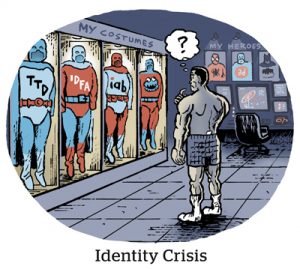Here’s today’s AdExchanger.com news round-up… Want it by email? Sign up here.
The AdExchanger team is celebrating our independence with a long weekend off! The daily news roundup will return on Wednesday, July 5.
Maxxed
Mike Ryan, head of ecommerce insights at Smarter Ecommerce, posted a Twitter thread about the relative performance of Performance Max, Google’s world-eating, AI-brained ad product, based on 3,000 PMax ecommerce campaigns compared to Google Standard Shopping.
TL;DR: PMax does work on its self-proclaimed merits of effectively reaching a target RoAS. It outperformed humans in four out of five campaigns.
But PMax flat failed for marketers with low-volume sales (fewer than 30 per month).
And consider this: Counterintuitively, overachieving RoAS isn’t necessarily a good thing. By targeting people at or near a conversion, which Google knows based on search history or product page visits, PMax can report great efficiency yet undercut revenue. (Many would have purchased or converted anyway, so why even buy the ads or offer a discount?)
PMax achieves its RoAS score without buying more media, because PMax’s impression share is steady, according to Smarter Ecommerce data and an assortment of proxy metrics.
In Ryan’s words: “In the pessimistic case (right), which I endorse, efficiency is being over delivered. Which potentially means that revenue is being underdelivered. F*ck.”
Under The Influence
Influencer marketing has become a lot more professional over the past five years or so. But it’s still new and comes with real risks.
Bud Light is still reeling from an influencer deal, a Pride Week tie-in that included Dylan Mulvaney, who’s known for documenting her gender transition.
Three months after Mulvaney posted the video that sparked outrage (the content itself was innocuous; the reaction was primarily that Bud Light was endorsing a transgender influencer at all), beer stores in conservative areas are practically giving away Bud Light for free, but still can find no takers, The New York Times reports.
Meanwhile, skincare brand Bioré and an influencer got in hot water when she brought up anxiety attacks following a shooting at Michigan State University, where she went to school. (It was a mental health awareness month campaign.)
The Bioré influencer’s post would probably have created no drama if it wasn’t sponsored.
And, sometimes, influencers boil their own hot hater.
A group of influencers are facing scrutiny for a sponsored trip to a Shein factory in China, part of a Potemkin village-type effort to nix Western reports of Shein’s appalling labor standards.
AI Opener
Meta is offering a peek into the machine learning algorithms that power content distribution on Facebook and Instagram, The Verge reports.
Meta’s automated recommendation system collects public user content, including photos and Reels (its short-form video snippets), and looks at how users have interacted with similar interests or content.
Facebook and Instagram are also providing more tools for users to shape their personal content recommendation output and inputs. Users can take actions such as saving content, labeling things as “not interested” or choosing “Show more” or “Show less.”
And Meta will soon roll out its “Why Am I Seeing This?” feature to Facebook Reels, Instagram Reels and Instagram’s Explore tab.
A blog post by Nick Clegg, Meta’s president of global affairs, frames the info Meta shared as “part of a wider ethos of openness, transparency and accountability.” With regulators and the general public alike uneasy about how AI tech stockpiles, slices and dices user data, Meta’s move could be considered an olive branch or preemptive self-defense.
But Wait, There’s More!
Major news publishers want to team up to address the impacts of AI search and content generation technologies. [WSJ]
The FTC has updated its Endorsement Guides, which provide advice to businesses and others to ensure they use reviews and endorsements truthfully in ads. [release]
Google will remove Canadian news from search in response to a newly passed law that requires digital platforms to pay local news publishers. [Bloomberg]
Programmatic ads pose new brand risks amid the generative AI boom. [Digiday]
New investors bring Moloco’s valuation to more than $2 billion. [release]
You’re Hired!
Gannett names Chris Cho as its president of digital marketing solutions. [release]
















